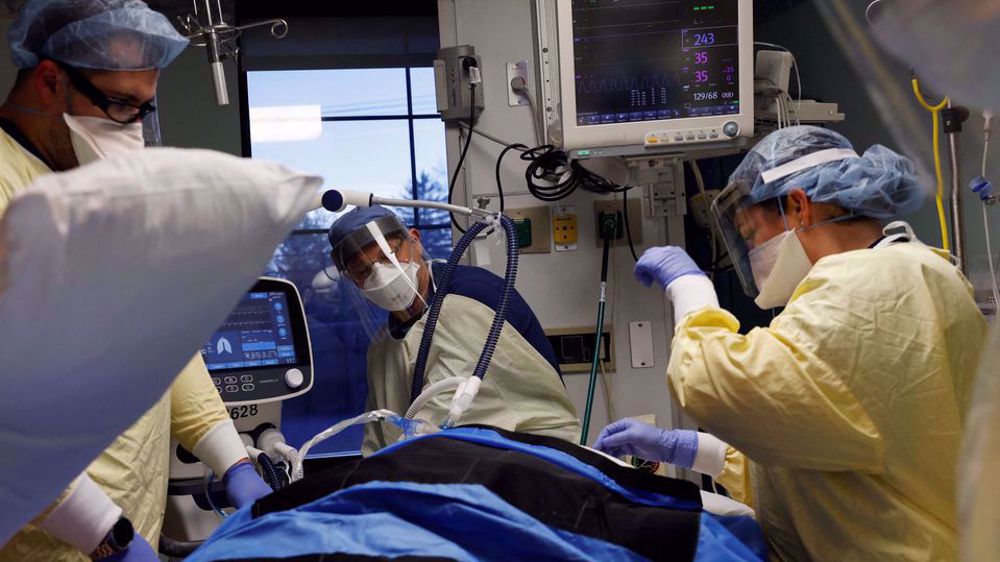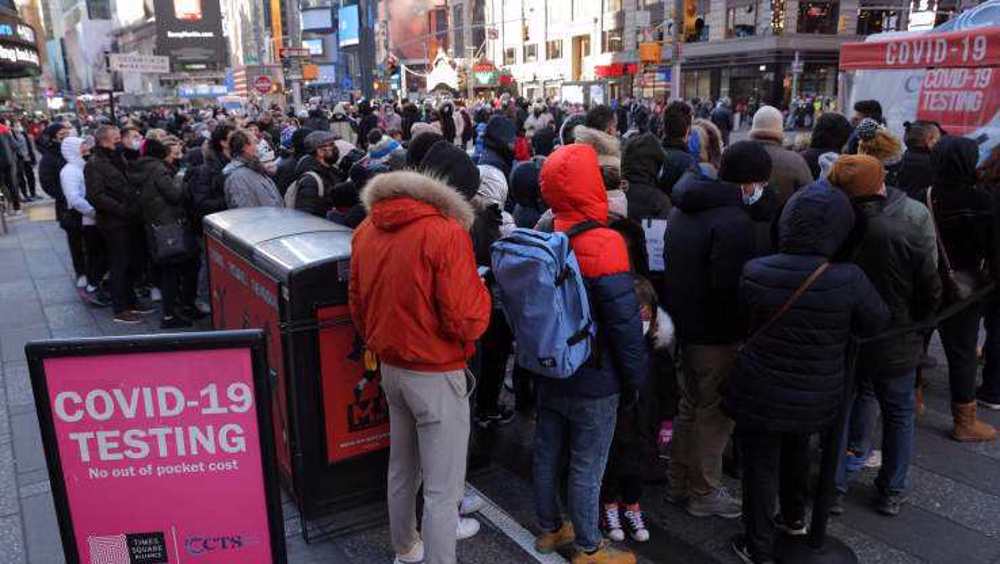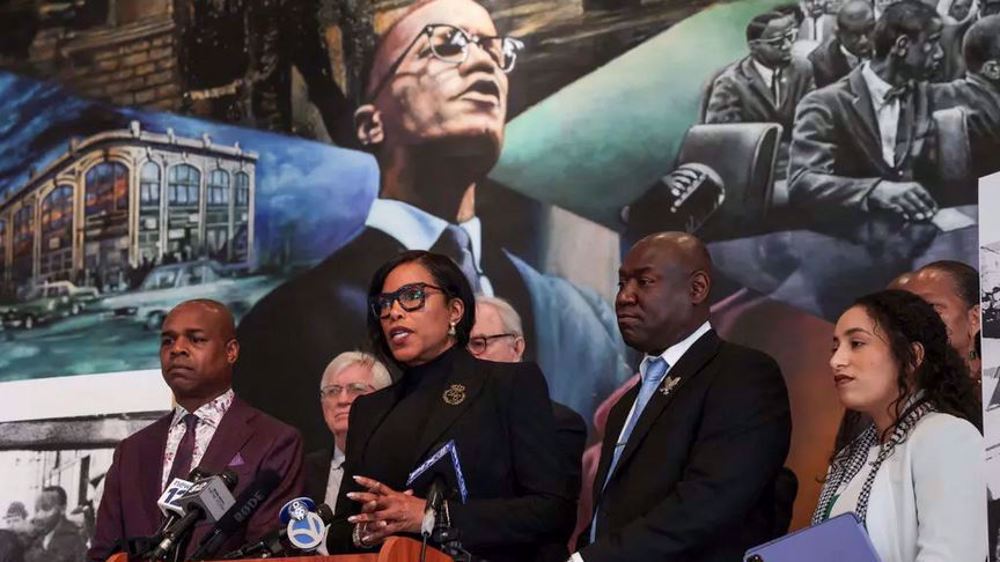Omicron overwhelms hospitals in early hit cities across US
The Omicron variant has overwhelmed hospitals in early hit cities across the United States, with experts saying this could be just the beginning.
Since late December, hospitalizations have increased steadily as Omicron quickly overtook Delta as the dominant coronavirus variant in the United States.
Among the new variant’s symptoms for American cities are disrupted city services and short-staffed schools.
While in Kansas, overwhelmed hospitals are turning away ambulances, in Los Angeles, hundreds of police and firefighters are out sick with the virus.
Meanwhile in New York City, garbage collection and subway services have been delayed because of staff shortages.
And schools all across the country which struggled to stay open have few teachers left to teach.
“This really does, I think, remind everyone of when COVID-19 first appeared and there were such major disruptions across every part of our normal life,” Tom Cotter, director of emergency response at the non-profit Project HOPE, told the Associated Press.
Although data have shown the Omicron strain causes milder illness than previous variants, especially in vaccinated people, its transmissibility is staggering.
During the pandemic’s previous all-time peak in the US in January 2021, the country’s daily average recording of cases was nearly 251,000, today, however, that figure is over 656,000.
That contagiousness alone is causing a crisis in the US’ healthcare. In New York, the State Department of Health has ordered 40 hospitals to stop performing non-essential surgeries.
“We will use every available tool to help ensure that hospitals can manage the COVID-19 winter surge,” Acting State Health Commissioner Mary Bassett told WABC.
In Johnson County, Kansas, some filled-up hospitals have told incoming ambulances to go somewhere else. In addition, given no beds left to offer, they have asked emergency room patients to convalesce in waiting rooms.
“What my hope is and what we’re going to cross our fingers around is that as it peaks... maybe it’ll have the same rapid fall we saw in South Africa,” Dr. Steve Stites, chief medical officer at University of Kansas Hospital, told AP. “We don’t know that. That’s just hope.”
Despite the fact that Omicron’s mortality rate so far appears to dwarf those of previous variants, its enormous caseload means its death toll could still be significant.
In Cook County, Illinois (which includes Chicago), the daily average death count was 7 at the beginning of December. By 8 January, that figure had gone up to 31. In the same timeframe, the daily death count in New York City has soared from 11 to 56.
The country’s hospitalizations approached 123,000, appearing poised to top the record above 132,000, according to a Reuters tally.
Israeli strikes kill 88 Palestinians in northern Gaza
American voters plainly rejected complicity in Gaza genocide: Iran FM spox
ICC should issue more arrest warrants for Israeli authorities over Gaza genocide: UN expert
Israel using AI weapons co-produced by India in Gaza genocide: Report
Israel issues new evacuation orders, shortly launches strikes on southern Lebanon
VIDEO | Press TV's news headlines
From Iraq to Gaza: The great disconnect between British people and rulers
Syria condemns Israel's killing of 36 in 'horrific' strike on Palmyra











 This makes it easy to access the Press TV website
This makes it easy to access the Press TV website